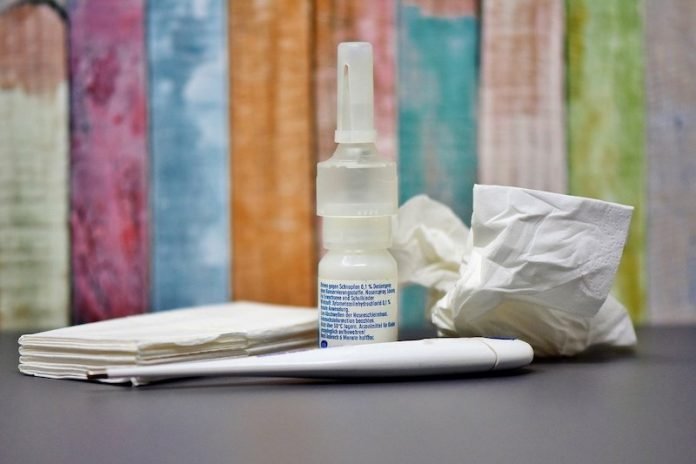
In a recent study at Columbia University, researchers developed a nasal antiviral that blocked transmission of SARS-CoV-2 in ferrets.
The compound in the spray is a lipopeptide designed to prevent the new coronavirus from entering host cells.
The antiviral lipopeptide is inexpensive to produce, has a long shelf life, and does not require refrigeration.
These features make it stand out from other antiviral approaches under development, including monoclonal antibodies.
The researchers suggested the nasal spray also may prevent infection in people exposed to the new coronavirus.
The study is published in mBio. One author is Anne Moscona, M.D.
The team says the new nasal lipopeptide could be ideal for halting the spread of COVID in the United States and globally; the transportable and stable compound could be especially key in rural, low-income, and hard-to-reach populations.
In the paper, they described the first generation of the compound and its effect on a 3-D model of the human lung.
In this human lung model, the compound was able to extinguish an initial infection, prevent the spread of the virus within the lung, and was not at all toxic to the airway cells.
The lipopeptides work by preventing a virus from fusing with its host’s cell membrane, a necessary step that enveloped viruses, including SARS-CoV-2, use to infect cells.
To fuse, the new coronavirus unfolds its spike protein before contracting into a compact bundle that drives the fusion.
The compound designed could recognize the SARS-CoV-2 spike, wedges itself into the unfolded region, and prevents the spike protein from adopting the compact shape necessary for fusion.
The team says the drug could be used in any situation where an uninfected person would be exposed, whether in a household, school, health care setting, or community.
They hope to rapidly advance the preventative approach to human trials with the goal of containing transmission during this pandemic.
Copyright © 2021 Knowridge Science Report. All rights reserved.




